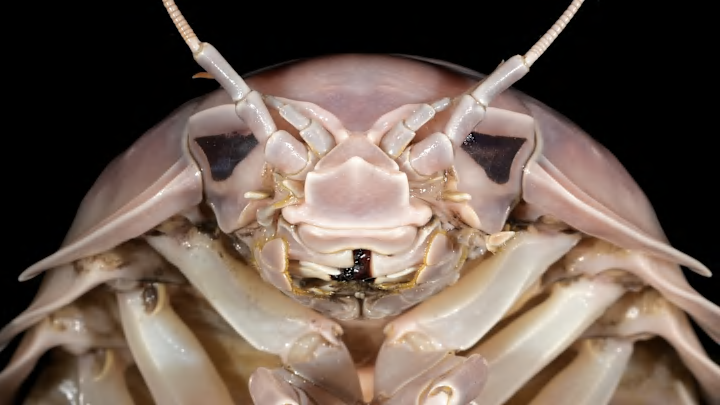Imagine a bug-like creature that’s the length of a small dog. It’s not a comforting picture, but it’s one you might come across if you ever venture into the depths of the ocean. Recently, scientists identified a new species of these giant isopods and named it after the Star Wars villain, Darth Vader.
According to a study published in the journal ZooKeys, researchers from Hanoi University obtained four giant isopods from Vietnamese fishermen in Quy Nhơn City in March of 2022. The researchers noted their distinct clypeal region (face plates) and unique pleotelson (the ending structure of a crustacean body). The former resembles the helmet of the iconic character it was ultimately named after.
Popular Science reports that the scientists from Hanoi University teamed up with experts from the National University of Singapore, the National Research and Innovation Agency Indonesia, and the Vietnam National University to study the specimens. The team realized they belonged to a species of giant isopod that had yet to be identified.
Giant isopods, which belong to the Bathynomus genus, can grow to be over 11 inches, but the biggest ones reach nearly 20 inches in length . Bathynomus vaderi's size puts in the “supergiant” isopod category at 12.7 inches long and 2.2 pounds in weight.
Although the Vietnamese name for giant isopods is bọ biển, which translates to “sea bugs,” these behemoths aren’t bugs. Their closest relatives are marine crustaceans, such as shrimp and crabs. Pill bugs are also closely related to them. Giant isopods are foodies as well. While they can last a while without a meal, they’ll gorge themselves when feeding time arrives. Dee Ann Auten, an Aquarist II at the Aquarium of the Pacific, told Mental Floss in 2022, “When they‘re hungry, and they‘re eating, {we’ll} definitely have a lot of food around them because they‘ll keep eating.” Their carnivorous diet consists of dead animals that have fallen to the ocean floor, but evidence suggests that they also feast on slow-moving animals like sponges.
Read More About Marine Animals:
